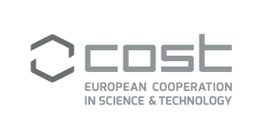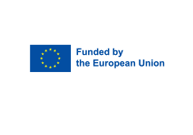Freshwater ecosystems are experiencing an unprecedented biodiversity crisis, with already
one-quarter of freshwater fauna threatened by extinction. One key driver is chemical
pollution—and pharmaceuticals play an increasingly recognised role. At the Biologists@100
conference, I highlighted how pharmaceuticals, even at very low concentrations, can trigger
subtle but ecologically meaningful behavioural changes in aquatic wildlife.
Using case studies, including our research on fluoxetine (the active ingredient of Prozac)
exposure in fish, I showed that important behaviours such as foraging and anti-predator
responses are disrupted in the presence of pharmaceutical pollution. These effects often
occur at concentrations far below those causing traditional toxic outcomes like mortality or
impaired reproduction. Importantly, the effects can differ across life stages and can persist or
change over long-term exposures, as our 12-week chronic exposure study demonstrates.
Despite the growing evidence for behavioural disruption, current regulatory frameworks
seldom integrate behavioural endpoints into environmental risk assessments. Instead,
regulatory tests focus on short-term, acute toxicity without accounting for subtle, chronic, and
life-stage-dependent impacts.
This gap underscores the urgent need to refine our risk assessment paradigms—an
objective closely aligned with the goals of the OneHealthdrugs COST Action. By advocating
for the early integration of environmental considerations into drug development pipelines and
emphasising the importance of incorporating complex biological responses such as
behaviour, our work helps promote the Action’s vision of eco-friendlier pharmaceuticals.
To support the integration of behavioural ecotoxicology into regulation, I also introduced the
EthoCRED framework: a new tool we developed to guide the evaluation and reporting of
behavioural studies, aiming to enhance their scientific quality and regulatory utility.
Through advanced technological methods, including high-resolution behavioural tracking
and field-based telemetry, we can now quantify ecological effects at an unprecedented
scale, detail, and realism. Embracing these innovations will be key to achieving sustainable
pharmaceutical use and regulation that protects both environmental and human health—a
core tenet of the One Health approach promoted by OneHealthdrugs.
COST (European Cooperation in Science and Technology) is a funding agency for research and innovation networks. The COST ACTIONS help connect research initiatives across Europe and enable scientists to grow their ideas by sharing them with their peers. This boosts their research, career and innovation.
One Health drugs against parasitic vector borne diseases in Europe and beyond
OneHealthdrugs
24/10/2022
23/10/2026
27/05/2022
Download file
Maria Paola Costi
Anabela Cordeiro da Silva
Maria Cristina Notarsanto
Maria Esposito and Laura Leonardi


